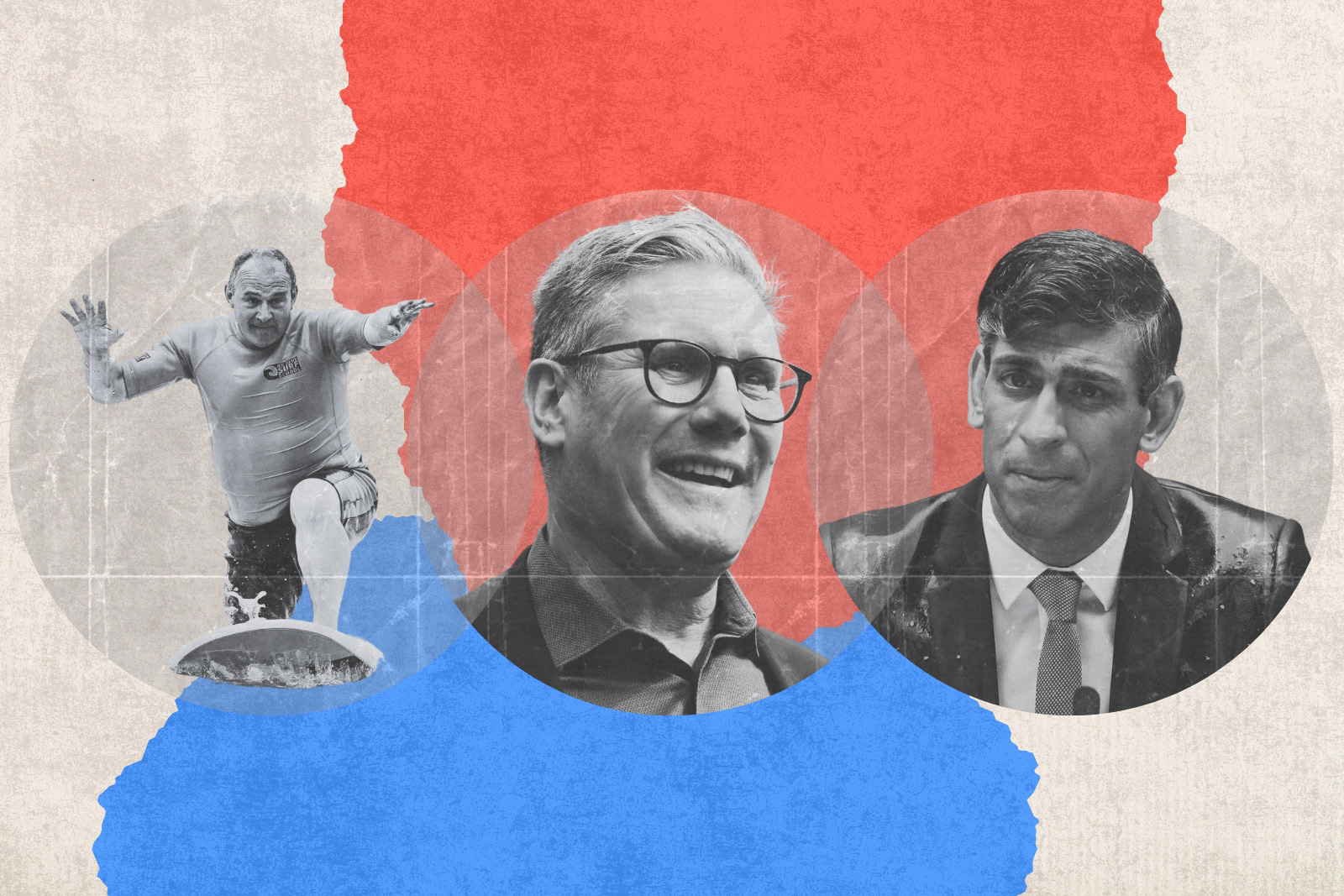What we’ve learnt after six weeks of electioneering — and what to watch for on election night
Top Tories could lose their seats, Ed Davey could become leader of the opposition and Labour’s resilience to anger over Gaza will be tested. It’s all led up to this moment
–

It may seem like a lifetime ago that Rishi Sunak stood on the steps of Downing Street drenched in rain — but the 2024 general election campaign, which is now drawing to a close, has lasted barely six weeks.
There have been plenty of extraordinary moments in that time, from Sunak’s D-Day disaster to the betting scandal and Ed Davey’s relentless publicity stunts. Now, at last, Britain has the chance to decide who will get the keys to Number 10.
Sunak and his party have trailed Labour in the polls since long before the election was called. But the Conservatives have been insistent that the writing is not on the wall. I remember at the campaign launch a source close to Sunak was quite literally skipping with excitement at the thought of the tide shifting. “I can’t wait to sell our vision and watch as our support grows,” they said.
I have been up and down the country with Sunak’s campaign team, which has remained remarkably chipper despite the polls’ refusal to narrow. As the final moments draw closer, though, the narrative has shifted somewhat. One of the prime minister’s closest allies, work and pensions secretary Mel Stride, made headlines this morning when he appeared to concede that Labour would win a huge majority.
If you believe the MRP polls so far, that is definitely on the cards. YouGov and Sky’s latest iteration has Labour on course to win a majority of 212 seats, the highest of any single party since 1832. There is also the suggestion that the Tories could get barely 100 seats — and, by other estimates, could find themselves in a battle with the Liberal Democrats to become the country’s official opposition. Davey says he is taking nothing for granted, but a result like that would be truly out of this world.
Plenty of moments throughout the night could be fascinating, with a number of cabinet beasts potentially losing their seats. Grant Shapps, Alex Chalk, Mark Harper and even Jeremy Hunt have all been touted as big names who are potentially under threat and if any, or many, of them were to lose, it would be like nothing we have ever seen before.
But Labour is adamant that this is not over. While the Tories talk up the chances of a supermajority, Labour sources tell me they think the race is much closer than it looks, although it is nothing new for parties to engage in expectation management before a poll. One senior figure close to Keir Starmer told me they think at least one in eight voters are undecided, which is enough for things to shift massively.
At the same time, there are other subplots. A number of independent candidates are standing on a Gaza platform targeting safe Labour constituencies. Seats in London, Birmingham, Luton and Bradford are all worth keeping an eye on as the results come in through the early hours of Friday morning. Although the loss of a seat or two would mean very little to Labour if the polls are correct, it would serve as an interesting story about the state of the party’s relationship with the Muslim community, and about how politically active British Muslims are.
Then, of course, there is Reform UK. I was in the audience when Nigel Farage told a press conference in early June that he was taking over as leader, and there were audible gasps by those who had gathered to listen to him talk. I spoke to members of his team that day and they were clear in their ambition to hold the Tories to account — and to take votes from them. The polling suggests they have done exactly this, but the electoral system is not designed in their favour, so it is unlikely that Reform UK will get many seats at all. Its emergence as a political force could, however, result in some Conservatives losing seats they would otherwise have won.
In Scotland, this election is about more than just who ends up with the most seats. At its manifesto launch, which I covered for ITV News, the Scottish National Party (SNP) made clear that it would view a majority in Scotland as a mandate for another independence referendum. If it fails to win one, the independence debate could be effectively over for quite some time.
The polls are close, but things don’t look good for John Swinney and his party. From the voters I spoke to in Scotland, there was dissatisfaction not only with politics in Westminster but with the scandal over party finances that has rocked the SNP. And Labour does seem quietly confident about the progress it has made. I was told that resources were being directed to Scottish constituencies in which the party had previously thought it had no chance.
It won’t be until 10pm on Thursday, when we get our first look at the exit poll, that we will know what the future of the United Kingdom looks like. Until then, candidates up and down the country will be fighting tooth and nail to win over as many voters as possible.
Shehab Khan is an award-winning presenter and political correspondent for ITV News
Topics
Get the Hyphen weekly
Subscribe to Hyphen’s weekly round-up for insightful reportage, commentary and the latest arts and lifestyle coverage, from across the UK and Europe
